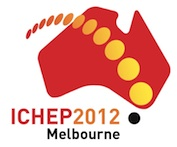Speaker
Prof.
Leif Ingvar Lönnblad
(Lund University (SE))
Description
We present a new Monte Carlo event generator based on the Mueller dipole model. The model is equivalent to leading logarithmic BFKL evolution and in our implementation we include several non-leading effects, such as energy-momentum conservation and a so-called swing mechanism to model saturation effects. In the end we can model all kinds of correlations and fluctuations between partons in the initial-state cascade and by adding final-state parton showers and string hadronization we can produce exclusive hadronic final states.
So far the program has given promising results for minimum-bias events in proton collisions, but the main application may be for heavy ion
collisions. Here we can again model kinds of correlations and fluctuations not only between partons in individual, but also between partons in different nucleons. This can then be used as the initial state of a hydrodynamical evolution model to better understand how observables are affected by initial-state effects. Alternatively it can be used as in proton collision with parton showers and hadronization to realistically model what heavy-ion collisions would look like in the absence of collective final-state effects.
Summary
We present a new Monte Carlo event generator based on the Mueller
dipole model, which can be used to model fully exclusive final states in both proton and heavy ion collision.
Authors
Dr
Christoffer Flensburg
(Lund University)
Gosta Gustafson
(Lund University)
Prof.
Leif Ingvar Lönnblad
(Lund University (SE))
